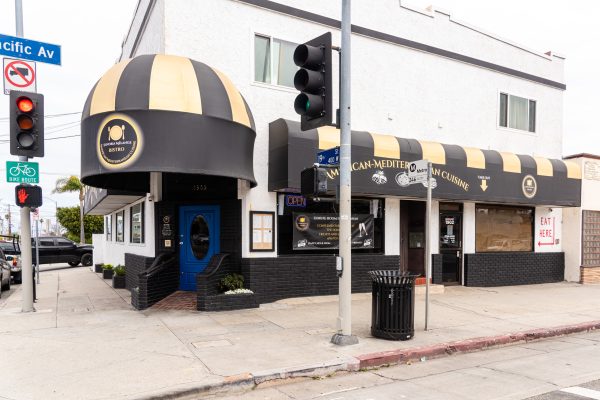Two dueling complaints against candidates and organizations on either side of Redondo Beach’s upcoming electoral battle have been granted investigations by California’s Fair Political Practices Commission.
Resident Eugene Solomon has long advocated against the Redondo Beach Chamber of Commerce for the public funding it gets in a contract with the City. In past City Council meetings, Solomon has argued that a violation of government code may exist in that public funds allegedly go toward the Chamber’s private political purposes through its Political Action Committee.
However, his complaint filed with the FPPC accuses the Chamber of money laundering activity related to a January 2016 “Mayor’s Reception” fundraising event.
In his complaint, Solomon states that “numerous purchases were made electronically using the credit card machine and account for the [Chamber]. The [Chamber] then contributed the funds collected as payment for tickets to the [PAC]…the [PAC disclosure form] fails to disclose the true identity of the contributions made to the [PAC].”
The contributions were gathered through the cost of a $50 ticket to the event. Annual contributions to a PAC or to a candidate committee that total under $100 do not require the same reporting as larger contributions, under state law.
“But cumulatively, you’re required once you reach the $100 threshold,” Solomon said. “It seems logical to assume that there were people there, at least someone, [who] donated more.”
Solomon’s complaint also states that the Chamber has made non-monetary contributions to its Chamber of Commerce PAC without reporting them. He lists utilities, supplies and administrative resources — including staff — among resources shared between the Chamber and the PAC.
“All of these things seem perfectly normal, except according to the FPPC and state law,” Solomon said.
The problem, Solomon contends, is poor financial control by the Chamber.
“I would say it’s an inattention to important financial details,” Solomon said. “It’s an example of them and the PAC operating as one entity.”
Michael Jackson, Chairman of the Redondo Beach Chamber of Commerce Candidates PAC, said that, to this point, all the PAC has received is a letter of complaint.
“What we’re going to do is allow the FPPC to do whatever they do and wait for them to come back,” Jackson said. “Then we’ll be able to understand exactly what it is that they would like us to do — that’s all I can comment on, given where we are.”
A similar complaint, filed by resident Michael Calahan, was filed against Councilman Bill Brand, accusing him of controlling the Rescue Our Waterfront PAC, stating that ROW PAC and Brand “are coordinating fundraisers and operating side-by-side, but failing to promptly disclose such coordination.”
The complaint further alleges that ROW PAC’s yard signs and disclaimers are smaller than allowed by state law. It also states that the PAC is not adequately registered as a “general purpose committee” rather than a “primarily formed committee” solely in support of Measure C.
Measure C, which was written in part by ROW co-founder and District 2 candidate Nils Nehrenheim, would alter the zoning in the King Harbor waterfront in an effort to stop current redevelopment plans.
Though the complaint is being investigated by the FPPC, Brand dismissed it.
“I’m not coordinating with the ROW committee. I’ve got my hands full running for mayor, being a council member and working for American Airlines,” Brand said. “Nor would I; I’m not a part of ROW, though I certainly support what they’re doing.”
Brand argues that the complaint is simply being used as a smear tool against his campaign and other activists.
“It’s easy to make a claim and make it sound like someone is violating state law — it’s all very volatile and raises people’s suspicions about what they’re doing,” Brand said. “A lot of complaints are politically motivated by city affairs, and it smacks of favors for the opposition to our slow-growth policies.”
FPPC Communications Director Jay Wierenga said that the Commission steps in whenever there is enough evidence in a complaint to indicate that there may have been a potential violation.
“That’s not a determination that there is a violation, but that there’s sufficient merit for an investigation,” Wierenga said.
Investigations may result in adjudication by the commission at a meeting, or possibly in court, but the FPPC has to bear the burden of proof to ensure that a possible complaint could stand up to legal scrutiny. However, the investigations may take up to
“[Generally speaking], we’ve gotten complaints from one campaign or person against another that basically say ‘We’re filing because the other person is a bad person.’ That may be, but that’s not our judgement to make.”








